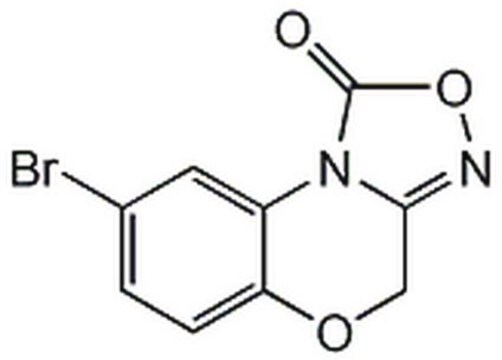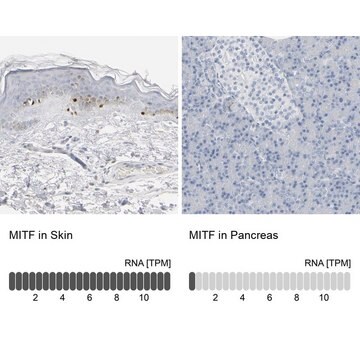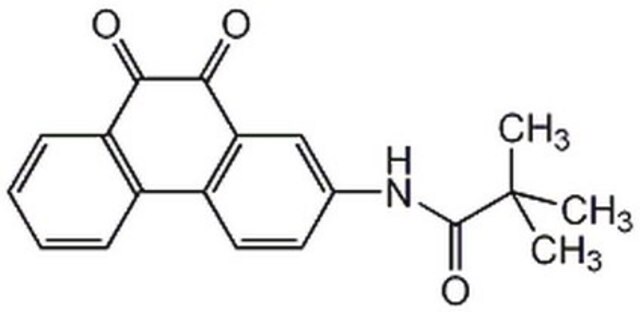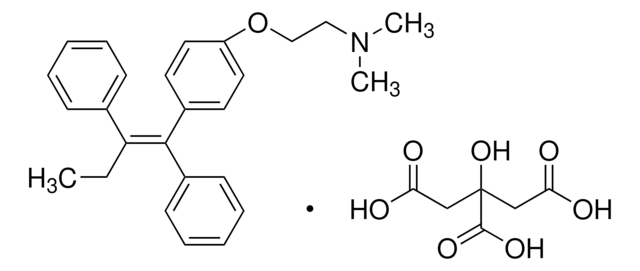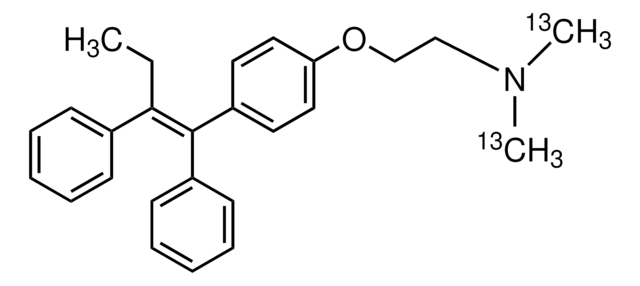SML1666
4-Hydroxytamoxifen
≥98% (HPLC), solution, Tamoxifen metabolite
Synonym(s):
4-OHT, cis/trans-4-Hydroxytamoxifen
About This Item
Recommended Products
product name
4-Hydroxytamoxifen Ready Made Solution, 5 mg/mL in ethanol: isopropanol (95:5)
biological source
synthetic
Quality Level
form
solution
concentration
5 mg/mL in ethanol: isopropanol (95:5)
shipped in
dry ice
storage temp.
−20°C
InChI
1S/C26H29NO2/c1-4-25(20-8-6-5-7-9-20)26(21-10-14-23(28)15-11-21)22-12-16-24(17-13-22)29-19-18-27(2)3/h5-17,28H,4,18-19H2,1-3H3/b26-25-
InChI key
TXUZVZSFRXZGTL-QPLCGJKRSA-N
Biochem/physiol Actions
Preparation Note
Signal Word
Danger
Hazard Statements
Precautionary Statements
Hazard Classifications
Aquatic Chronic 3 - Carc. 1B - Eye Irrit. 2 - Flam. Liq. 2 - Repr. 1B
Storage Class Code
3 - Flammable liquids
WGK
WGK 3
Flash Point(F)
55.4 °F
Flash Point(C)
13 °C
Regulatory Listings
Regulatory Listings are mainly provided for chemical products. Only limited information can be provided here for non-chemical products. No entry means none of the components are listed. It is the user’s obligation to ensure the safe and legal use of the product.
FSL
Group 4: Flammable liquids
Alcohols
Hazardous rank II
ISHL Indicated Name
Substances Subject to be Indicated Names
ISHL Notified Names
Substances Subject to be Notified Names
JAN Code
SML1666-BULK:
SML1666-1ML-PW:
SML1666-1ML:4548173981604
SML1666-VAR:
Certificates of Analysis (COA)
Search for Certificates of Analysis (COA) by entering the products Lot/Batch Number. Lot and Batch Numbers can be found on a product’s label following the words ‘Lot’ or ‘Batch’.
Already Own This Product?
Find documentation for the products that you have recently purchased in the Document Library.
Customers Also Viewed
Our team of scientists has experience in all areas of research including Life Science, Material Science, Chemical Synthesis, Chromatography, Analytical and many others.
Contact Technical Service




